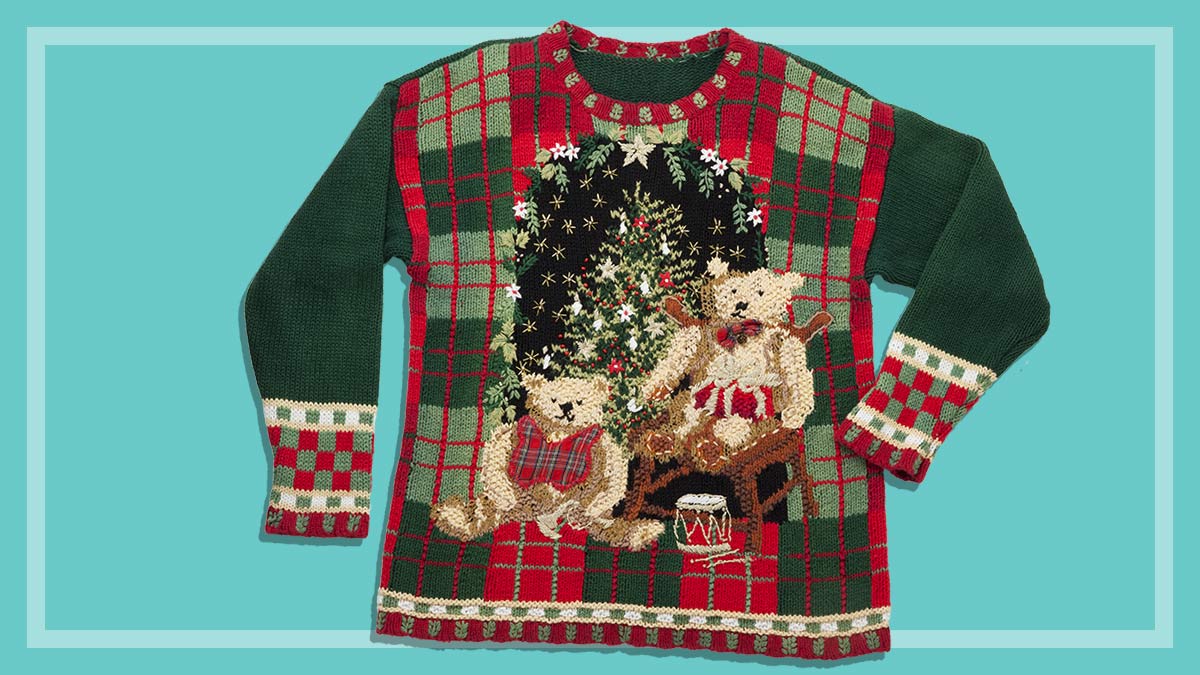Get our independent lab tests, expert reviews and honest advice.
Read this before you buy a gift card

Gift cards are a perennially popular choice for Christmas presents, and it’s easy to see why: they’re perfect for a range of recipients and reasons.
On this page:
- Making gift cards fairer
- Gift card pitfalls to avoid
- Gift cards and loyalty programs
- What happens if the business goes bust?
- Buying for the person who has everything? A gift card means they can buy something they don’t have.
- Forgot to organise a present? Grab a gift card at the supermarket on your way.
- Shopping for a picky teen fashionista? A gift card never goes out of style.
- Frazzled from all the Christmas mayhem and just out of ideas for presents? A gift card gives your brain a break.
And there’s sure to be plenty of gift cards bought before 25 December. Research from Pureprofile suggests that they’ll be a hit this Christmas: 46% of those surveyed said they want to receive them.
There are still some pitfalls you should be aware of so that your gift card doesn’t end up being worthless
Although they might be popular, gift cards have also been the subject of numerous complaints to CHOICE over the years, particularly around premature expiry.
Despite reforms to expiry dates that came into effect in 2019, there are still some pitfalls you should be aware of so that your gift card doesn’t end up being worthless.
Here’s how to make sure you get the most out of a gift card you buy or receive.

Making gift cards fairer
CHOICE has worked hard to make sure people don’t get dudded with gift cards, whether they’re buying or receiving them.
We campaigned for a long time to get the expiry periods on gift cards extended, and in November 2019 new laws were introduced that helped make gift cards better for consumers.
The regulations meant that gift cards must come with:
- a mandatory 3-year minimum expiry period from the day they were bought
- no fees charged after your purchase (excluding some processing of payment fees such as overseas transaction fees and booking fees)
- a prominently displayed expiry date – either the full date or a period of time (if the expiry date is shown as a period of time, it must also include the date it was supplied)
- all the conditions and restrictions on the card (for instance, limitations on the number of transactions)
- the activation expiry date for cards that need to be activated
If the gift card or voucher doesn’t expire, this fact must also be prominently displayed.
There are some exceptions to the law, including cards that can be reloaded or topped up, and gift vouchers that are for a product or service that’s available for a limited time, such as entry to a concert or exhibition.
For more examples, the Australian Competition and Consumer Commission (ACCC) provides details of the rules for gift cards. There are significant penalties if a company is in breach of these rules – up to $30,000 for corporations and $6000 for individuals.
Gift card pitfalls to avoid
Expiry date
- Choose a card that doesn’t expire, or go for one with the longest expiry date you can find (by law they must last at least three years).
- Double-check if the card needs to be activated by a certain date, so the recipient doesn’t miss out on using it.
- If you haven’t managed to use a gift card with three years’ validity before it expires, there is no legal obligation for the store to extend its expiry date. However, some stores may be willing to offer an extension if you ask politely, so don’t throw away that old card without at least checking first.
Balance check
Ideally, look for a card that lets you easily check the card balance either instore, online or via a phone call.
Spending more to use the balance
If, after using your gift card, there’s an amount left over but it’s not enough to buy something with, you may be tempted to spend some of your own money to use the balance. This might not be in your budget though, and you should weigh up if you’re OK with spending extra, or if you might need to forfeit the remaining amount if you can’t use it before it expires.
Lost or stolen cards
Treat your gift card like cash – if you lose it, it could be gone for good. However, some retailers allow you to cancel and reissue a lost card, sometimes for a fee. Conditions apply, so hold on to your receipts for gift cards and jot down details such as the card number.
Restrictions
- You may only be able to use a gift card in a specific store, so choose carefully. Aunt Beryl won’t thank you if she lives in Perth and the gift card you give her can only be spent at a restaurant in Sydney.
- Cards that can be used in a group of stores give the recipient more options. Some examples are gift cards that are redeemable at any of the Coles Group and Myer stores, or the Wish gift cards that can be spent at Woolworths Group retailers such as Big W, Dan Murphy’s and Woolies supermarkets.
- Shopping centre cards (such as Westfield gift cards) can generally be used at a wide variety of stores, but beware: they may not be accepted by all stores in the centre.
- Eftpos and Visa/MasterCard gift cards can be used at almost any retailer.
Fees and charges
- Fees are usually only a potential issue with Visa and MasterCard gift cards. Most retailer cards have no fees.
- Some cards charge an issue fee, and if you’re ordering online the postage and handling fees can be quite high. A virtual card sent by email or added to a person’s Apple or Google Pay account may be a better option if you want to avoid these extra charges.
- Some cards may charge a fee for extending the expiry period or reinstating lost or stolen cards.
- Once a gift card is issued, a business can’t charge any post-purchase fees. However, a business can still charge a fee to cover the cost of processing a payment, such as overseas transactions fees, booking fees and payment surcharge fees.
Gift cards and loyalty programs
That old adage about needing to spend money to save money can ring true with gift cards if you’re accessing them through a loyalty program such as Everyday Rewards or Flybuys.
As long as you’re smart about the way you buy and use them, you can actually reduce your spend and capitalise on special deals and benefits.
While our experts are wary of supermarket loyalty programs due to the amount of data that businesses collect on you, the reality is that many shoppers do sign up to use them.
If you put in some time to track the various deals and promotions on offer, you can use them to your advantage. Just think of it as payment for all the data the supermarket is collecting on you!
Buy discounted gift cards
Loyalty programs often offer discounts on gift cards for members if you buy them during promotional periods. You’ll get the full value of the card, but pay less for it, making your money go further.
For instance, if you snag a 3% discount on a $200 gift card, you’ll only pay $194. A $500 gift card will cost you $485.
It might not seem like much, but if you do it throughout the year, it can really add up.
You’ll get the full value of the card, but pay less for it, making your money go further
And if you buy gift cards with points, you’ll get even more value from them – especially since you’ve accumulated them from the shopping you’d be doing each week anyway. $485 worth of points for $500 worth of credit is a pretty good deal.
(You can also buy discounted gift cards from businesses where you’re a member – for instance, your health insurance fund, union, or motoring club such as NRMA.)
Don’t just give them as gifts
Despite the name, you don’t always need to give gift cards as a gift.
You can use them to pay for groceries and get two bites of the cherry in terms of points: you’ll get points first when you buy the gift card, and then again when you spend the gift card money at the supermarket.
You can use gift cards to pay for groceries or to buy tangible gifts
Or you could use the gift card credit to buy tangible gifts. (If you use a discounted gift card to buy during sales season, you’ll be saving twice over!)
In both these cases you’re spending money that you would have spent anyway, but if the money comes off a gift card rather than straight out of your bank account, you’re getting a nice little bonus for a few minutes’ work.
Boost your points
Loyalty programs sometimes run promotions offering bonus points for particular purchases, including gift cards.
For example, if a loyalty program is offering 5x bonus points on gift cards, you’ll bag 1000 extra points when you buy a $200 gift card. In the Woolworths Everyday Rewards program, 1000 points is equal to $5 off your next shop.
You can then put those extra points towards gift cards, holidays, buying products through the loyalty programs’ stores, or extra savings on your grocery shop.
Again, you’ll get more bang for your buck, just for spending money you were going to spend regardless.
What happens if the business goes bust?
More disappointing perhaps than having a card expire before you can use it, is having the business that issued the card cease trading before you can redeem your gift. If a business closes or changes owners, it may affect your rights as a consumer.
If the changes to trading are temporary – for example, if the store closes for a short period – the ACCC says that the business should provide some form of remedy. This might be as simple as extending the gift card expiry date to cover the period when it couldn’t be used.
If a business closes or changes owners, it may affect your rights as a consumer
When a business is sold, that doesn’t mean your gift card no longer has value. If the business was bought as an ongoing operation, the new owners have to honour the gift card.
Things get trickier if a business ceases trading due to insolvency. In this instance, you become an ‘unsecured creditor’, so you’ll only be paid after secured creditors and priority unsecured creditors. That often means you’ll be able to get only a small percentage of the value of the card, or even nothing at all.
In that situation you have a few options:
Investigate a chargeback
If the gift card was purchased quite recently and you paid with a credit or debit card or via a payment provider such as PayPal, you may be able to reverse the payment through your financial institution. There are time limits though, so act quickly if you want to take this option.
Find out if you can still make a transaction
If a business continues trading while under administration, you may still be able to make purchases, though there could be some fairly onerous conditions. For example, the administrator may decide that you have to spend an equivalent amount to the amount redeemed on the gift card transaction.
Register as a creditor
This is done via the administrator and means you may have at least some chance of getting some or all of your money back.
Apply for compensation
Some states and territories have funds that provide compensation to people who lose money when businesses in a particular sector fail. To find out if this applies in your situation, you should contact your state or territory consumer protection agency.






